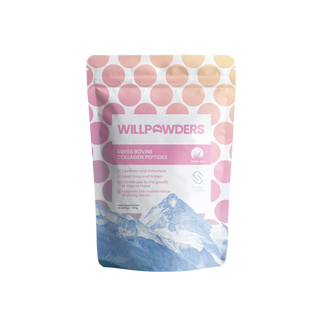How to Ask the Experts about Your Cycle
WTF IS UP WITH MY CYCLE
Hack Your Hormones
We’ve opened the Pandora’s Box of menstruation and finally know what to ask your doctor for if you are experiencing difficulties with your cycle or hormone balance.
A woman’s cycle really does have the ability to floor them, so it’s so important that you know how to talk to your doctor, what to get tested, and how to find that sweet spot when it comes to accurate diagnosis and medical help.
Cycle Help
If, like thousands of women, your cycle is causing you to feel miserable, worried or unwell, it’s important to provide your GP with as much information as possible so that you can receive the right support and get back to being the superhero that you are.
If you are experiencing these symptoms, get yourself down to the docs:
- Irregular bleeding, including spotting between periods, or after menopause
- Irregular vaginal discharge
- Post coital bleeding
- Breast changes
- Weight gain, Increased hair growth, irregular periods
- Vaginal dryness, itching or irritation
- Menopausal symptoms - hot flushes, mood impairment, recurrent urinary tract infections/ dryness or irritation, loss of libido, trouble sleeping, fatigue/ headaches/ body aches
- Amenorrhea - when your period stops or doesn't start at all.



The Pill
It’s important to know that long term use of the pill can impact your cycle. If you come off the pill after a long time, it is likely that your cycle may take a minute to return to normal as you have prevented your body from ovulation for a period of time. The pill can also cause nutrient deficiencies and change your gut microbiome. Therefore, in order to give your body a boot, you need to prioritise your gut health and detox your liver. We have a range of products that can help with this which you might consider taking if you’re looking to support your body’s natural yin and yang:
Gut Health
Liver Health
You might also want to give a liver flush a whirl and reset your body so that it can get to work in returning to normal.


HRT
If you are taking HRT, it’s important that you review your dosage and the type of HRT you are taking every 3 months with your health care professional. There are a number of Hormone Replacement Therapies, which include: gels, patches, creams and tablets. In order to support the most appropriate prescription, track your symptoms in a mood diary before you visit your doctor. This will ensure that you make the most of your time with your GP and help you to walk away with the best version of HRT for you.
Women’s health is still a bit of an unknown and we know that so many women really struggle to get the most appropriate help and support; therefore, if, after you have tracked your symptoms and you have communicated these to your doctor, you’re still no closer to finding that balance, don’t be afraid to ask for the following tests:
Medical:
- FSH, Oestradiol, Progesterone, Testosterone
- Thyroid baseline + adrenals baseline: TSH, TS4, T3, Morning DHEA and Cortisol
- Blood sugar response: HbA1c, fasting insulin and fasting glucose
- Full blood count
- Liver function test
Integrative testing
- Homocysteine, B12, folate - which will look for methylation issues
- Micronutrient status: Mg, Zinc, Cu+ - an organic acid test us useful, or Genova NutrEval
- Gut health: microbiome, leaky gut, parasites, funghi via a comprehensive stool test
- DUTCH Complete or Cycle mapping
Tech that may support you in talking to your doctor:
- Keep an eye out for Femtech
- Flo.health and Clue - cycle trackers
- Health and wearables such as Oura use body temp to track cycle.
 Collagen
Collagen
 Protein
Protein
 MCT
MCT
 Electrolytes
Electrolytes
 Vitamins & Minerals
Vitamins & Minerals
 Nootropics
Nootropics
 Accessories
Accessories
 Books
Books








